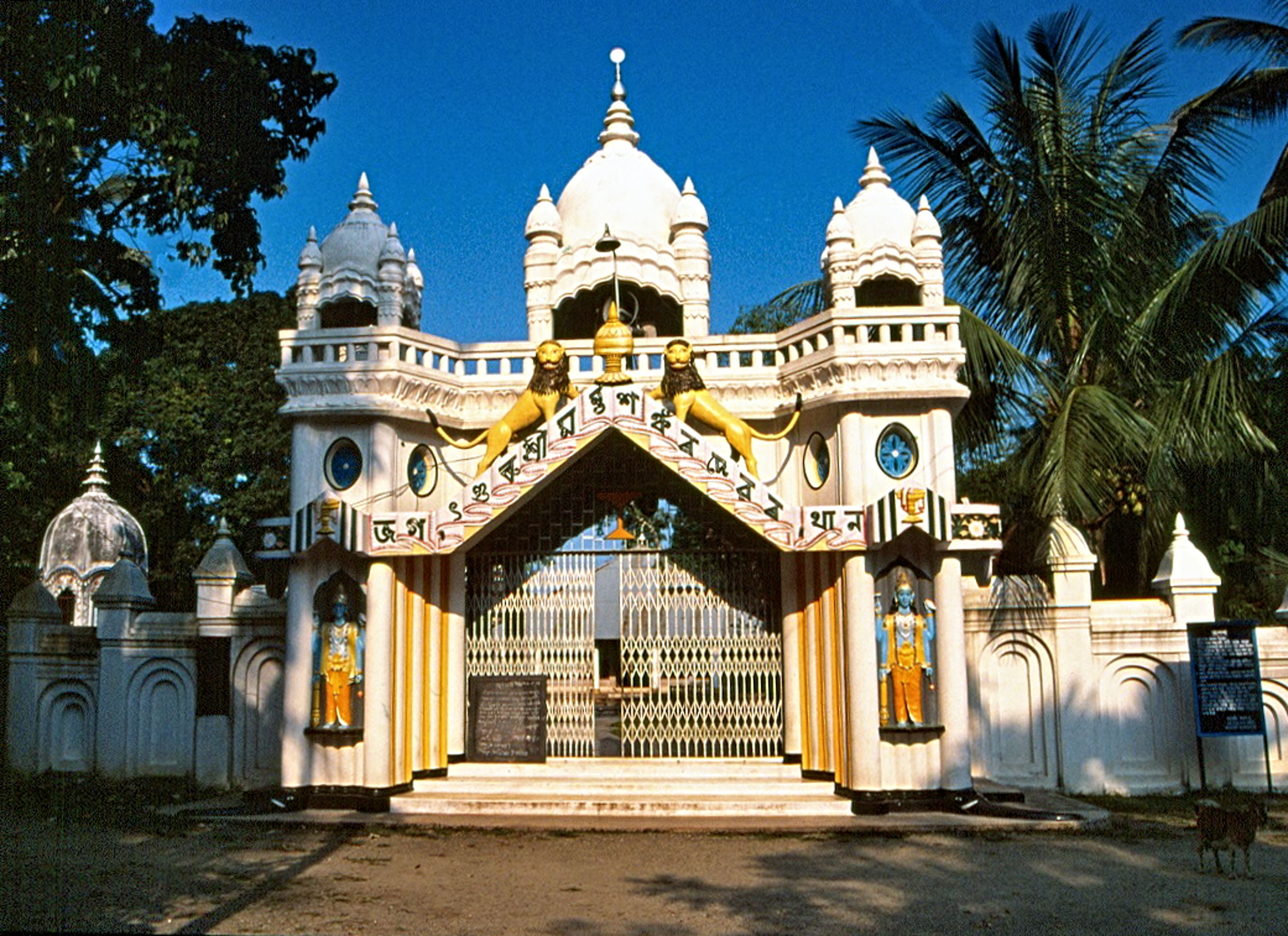|
Shankardev
Srimanta Sankardev( শ্ৰীমন্ত শংকৰদেৱ )(; ; 1449–1568) was a 15th–16th century Assamese polymath; a saint-scholar, poet, playwright, dancer, actor, musician, artist social-religious reformer and a figure of importance in the cultural and religious history of Assam, India. He is widely credited with building on past cultural relics and devising new forms of music (Borgeet), theatrical performance (Ankia Naat, Bhaona), dance (Sattriya), literary language (Brajavali). Besides, he has left an extensive literary oeuvre of trans-created scriptures (Bhagavat of Sankardev), poetry and theological works written in Sanskrit, Assamese and Brajavali. The Bhagavatic religious movement he started, Ekasarana Dharma and also called Neo-Vaishnavite movement, influenced two medieval kingdoms – Koch and the Ahom kingdom – and the assembly of devotees he initiated evolved over time into monastic centers called Sattras, which continue to be important socio-re ... [...More Info...] [...Related Items...] OR: [Wikipedia] [Google] [Baidu] |
Borgeet
Borgeets ( as, বৰগীত, lit=songs celestial, translit=Borgeet) are a collection of lyrical songs that are set to specific ragas but not necessarily to any tala. These songs, composed by Srimanta Sankardeva and Madhavdeva in the 15th-16th centuries, are used to begin prayer services in monasteries, e.g. Satra and Namghar associated with the Ekasarana Dharma; and they also belong to the repertoire of Music of Meghalaya outside the religious context. They are a lyrical strain that express the religious sentiments of the poets reacting to different situations, and differ from other lyrics associated with the Ekasarana Dharma. Similar songs composed by others are not generally considered . The first Borgeet was composed by Srimanta Sankardeva during his first pilgrimage at Badrikashram in c1488, which is contemporaneous to the birth of Dhrupad in the court of Man Singh Tomar (1486-1518) of Gwalior. Brajavali dialect is a language native to the Braj region of Uttar Prade ... [...More Info...] [...Related Items...] OR: [Wikipedia] [Google] [Baidu] |
Assam
Assam (; ) is a state in northeastern India, south of the eastern Himalayas along the Brahmaputra and Barak River valleys. Assam covers an area of . The state is bordered by Bhutan and Arunachal Pradesh to the north; Nagaland and Manipur to the east; Meghalaya, Tripura, Mizoram and Bangladesh to the south; and West Bengal to the west via the Siliguri Corridor, a wide strip of land that connects the state to the rest of India. Assamese and Boro are the official languages of Assam, while Bengali is an additional official language in the Barak Valley. Assam is known for Assam tea and Assam silk. The state was the first site for oil drilling in Asia. Assam is home to the one-horned Indian rhinoceros, along with the wild water buffalo, pygmy hog, tiger and various species of Asiatic birds, and provides one of the last wild habitats for the Asian elephant. The Assamese economy is aided by wildlife tourism to Kaziranga National Park and Manas National Park, which are ... [...More Info...] [...Related Items...] OR: [Wikipedia] [Google] [Baidu] |
Bishnu Prasad Rabha
Bishnu Prasad Rabha was an cultural figure from Assam, known for his contributions in the fields of music, dance, painting, literature as well as political activism. As an advocate of people's cultural movement, he drew heavily from different genres of classical and folk cultural traditions. Considered a doyen of the Culture of Assam, the Assamese people affectionately call him ''Kalaguru'' (meaning: "the master of the arts"). He is also called by Marxists as Sainik Silpi (sainik "soldier", silpi "artist") for his active participation in the armed struggle, led by the Revolutionary Communist Party of India (RCPI). Early life Bishnu Prasad Rabha was born in Dacca, Bengal Presidency, British India on 31 January 1909. His mother's name was Gethi Mech and father's name was Raibahadur Gopal Chandra Mushahary, who was working as a police under British regime. He was born to a Bodo family, but since he was raised by a Rabha family, he adopted 'Rabha' surname. Bishnu Rabha attended T ... [...More Info...] [...Related Items...] OR: [Wikipedia] [Google] [Baidu] |


